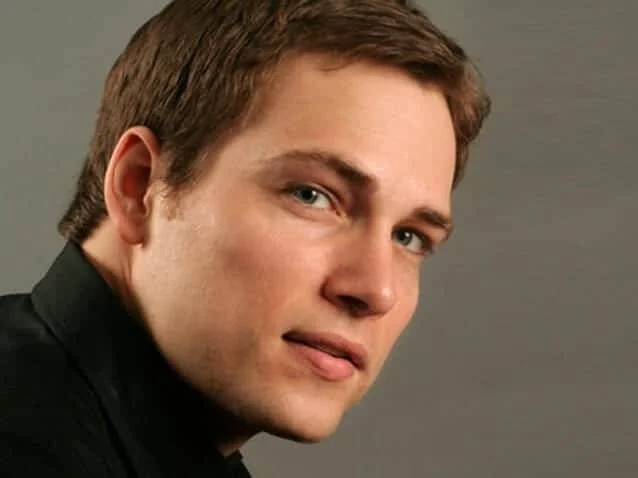INTERVIEW: Nate Cosby talks ALTER-EGO, a Golden Age of Hollywood superhero story
By Zack Quaintance — If you somehow haven’t heard of it yet, there’s a new graphic novel project on Kickstarter this week called Alter-Ego, which is a superhero story set amid the backdrop of the Golden Age of Hollywood. The book, which spans 100 pages, is from writer Nate Cosby, artist Jacob Edgar, colorist Kike J. Diaz, and letterer/designer Rus Wooton. It’s a really interesting project, and today we are lucky enough to have a conversation with Cosby about it.
You can check out that conversation below…enjoy!
INTERVIEW: Nate Cosby talks ALTER-EGO
ZACK QUAINTANCE: I wanted to start by asking about the book's influences. When I read a name like "Ace Adams", I'm thinking this is going to be indebted to classic superhero comics and tropes...
NATE COSBY: For sure! Alter Ego is a massive love letter to mine and Jacob Edgar’s love of great comics. For me, that list has to include Astro City by Kurt Busiek & Brent Anderson, The Life & Times Of Scrooge McDuck by Don Rosa, Tom Strong by Alan Moore & Chris Sprouse, DC: The New Frontier by Darwyn Cooke, The Rocketeer by Dave Stevens, Batman: Year One by Frank Miller & David Mazzucchelli, and Gotham Central by Greg Rucka, Ed Brubaker & Michael Lark.
All of those comics were just as much about creating a sense of place, as they were in telling a story. I love reading a book where I feel like I’m inside a designed environment, like there’s been thought paid to what goes on with the people who aren’t the main characters.
And for the building of Alter Ego’s environment, we pulled very liberally from classic movies, since the story’s set in the Golden Age of Hollywood. Jacob and I are huge movie buffs, and our first touchstone was Singin’ In The Rain. You’ll see lots of Gene Kelly’s performance in that film, built into Ace Adams’ personality and body language. And that’s where the idea of making Ace a stuntman came from. Other big influences include The Third Man, Casablanca, The Adventures Of Robin Hood, The Bad & The Beautiful, and In The Heat Of The Night.
ZACK: What it means to be a hero seems to be at the heart of the book. What's your personal take on that question, and did writing this book help you sort it out?
NATE: I’d never written a superhero story before, and for a long time I wasn’t sure if I really had one to tell. But over the past few years I’ve thought a lot about the idea of help…of helping others. There’s a sacrifice that can come with helping, a giving of yourself for the greater good. And I tried to empathize with someone that wanted to help so badly that they’d be willing to jump out in front of danger, because it would help others. And then I thought…well, how far could that go? If you’re a person willing to jump in front of danger during the day, would you do it at night too? Would you ever want to take a break? Would you use different methods for different situations? What kind of moral lines would you be willing to cross, if it was for the greater good? And even if you knew you couldn’t help everyone all of the time…would you still try? I didn’t have the answers to all that, and so I’m using Alter Ego, and the journey of Ace Adams, as a way to work out my personal feelings on it. I’m still working them out, to be honest.
ZACK: I absolutely love Jacob Edgar's work. What made him the perfect choice for Alter-Ego, and what was your working relationship like?
NATE: I absolutely love Jacob’s work too! He and I co-created a western called Fantastic Bandits a few years ago, so we’d already established a good collaborating relationship. For Alter Ego, we took a lot of time exploring how our favorite books and movies made us feel, and the ways in which we can imbue our story with those same sensations. Jacob’s such a versatile artist that is game to try any and everything thrown at him. My favorite aspect has been seeing his ability to shift storytelling gears, as we shift from daytime action (big widescreen panels) to nighttime fights (boxy, noir-tinged panels). His work alone is worth the price of the book.
ZACK: I'm curious about the length of the book. At what point in the process did it become clear it would span 100 pages, or was that a targeted number for publishing purposes from the start? I've run my own comics Kickstarter and this was something I thought about a lot during the process...
NATE: This may sound weird, but I just felt like 100 pages was “movie length.” The story’s set in Hollywood, it’s about a guy that works in movies, it’s heavily influenced by my love of films, and most of my favorite movies are between 90 and 100 minutes long. So I just figured 100 pages would be the right size to give a reader a full experience, without overstaying our welcome.
ZACK: Finally, if you had an Alter-Ego, what would it be and why?
NATE: I wouldn’t mind being the fourth or fifth person on the call sheet of a cop or lawyer show. Like I’m the one that works in the lab and tells the main characters what the DNA test revealed, or the assistant district attorney that runs into the courtroom to whisper to the DA about a surprise witness while the judge harrumphs that we’re taking too much time. Seems like fun work, good paycheck. And everybody on the street would give me a look like “Hey, I know that guy from somewhere,” but that’s as far as it’d go.
>>Check out ALTER-EGO on Kickstarter Now<<
Read more interviews with comic book creators!
Zack Quaintance is a tech reporter by day and freelance writer by night/weekend. He has written about comics for The Beat and NPR Books, among others. He Tweets compulsively about storytelling and comics as Comics Bookcase.












